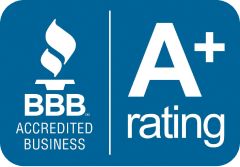The hospital benefits are covered by Medicare Part A. At the age of 65, a person is considered eligible. Those diagnosed with ESRD or ALS may be eligible for benefits earlier than this age.
The initial enrollment period for Medicare begins three months before the month in which a person turns 65. They have an additional window of opportunity of three months following their birth month in which to apply.
We’ll go over what you need to qualify for Medicare Part A and how to apply. We also discuss the factors that determine whether or not a person is eligible for Medicare Part A, and whether or not a spouse is eligible depending on their partner’s qualifying for Medicare.
Qualifications for receiving Medicare Part A
When a person reaches the age of 65, they become eligible for Medicare Part A.
An individual has 7 months to sign up. This period covers the three months leading up to their birthday, the entire birthday month, and the three months following.
If an application is received outside of this window, the applicant will be subject to a higher rate.
Receiving retirement payments from the Social Security Administration (SSA) or the Railroad Retirement Board (RRB) will result in automatic enrollment in Medicare Part A.
Eligibility if under 65 years old
If any of the following conditions apply, a person may become eligible for Medicare Part A sooner than expected:
Individuals who have been receiving Social Security or Railroad Retirement Board disability payments for 24 consecutive months may be eligible for premium-free Medicare Part A coverage.
A doctor’s note attesting to a person’s disability status is required for them to get Medicare benefits under those circumstances.
Disabilities, both mental and physical, of varying severity are considered.
Individuals with ESRD who are on dialysis or who have received a kidney transplant may be eligible for premium-free Part A coverage.
A 24-month waiting period for coverage is not necessary, unlike other disability requirements.
People who have ALS, often known as Lou Gehrig’s illness, are eligible for Medicare Part A. They usually don’t have to wait the typical 24 months to become eligible.
In most cases, the first month a person receives Social Security or Railroad Retirement Board disability benefits is also the first month they receive Medicare Part A.
A Medicare Part A applicant or beneficiary who has questions about their eligibility for Medicare or any other Medicare-related topic should call the Social Security Administration (SSA) at +1 877 255-0284.
Eligibility of Spouse for Medicare Part A
If your spouse has paid Medicare taxes for at least 40 quarters through their job, you may be eligible for Medicare Part A benefits if you are 65 or older. This would qualify them for a no-cost Part A insurance policy.
No one under the age of 65 can receive Medicare benefits based on their spouse’s eligibility unless they both have a qualifying disability or the younger spouse has died.
If a person is 62 years old but their spouse is 65, they will not be eligible for Medicare Part A benefits until they reach the age of 65.
There are a variety of reasons why a person might not qualify for Medicare Part A.
To be eligible for Medicare Part A, a person must be 65 or older. They cannot receive Medicare Part A benefits before this age unless they meet additional criteria, such as having a qualifying disability.
Despite reaching the age of 65, not everyone is entitled to the no-cost benefits of Medicare Part A. Someone who hasn’t worked for 40 quarters and hence hasn’t paid Medicare taxes is an example of someone who isn’t eligible.
A $259 monthly premium for Medicare Part A is available to those who have paid Medicare taxes for 30–39 quarters. A monthly premium of $471 may be required if an individual has paid taxes for fewer than 30 quarters.
Medicare Part A is not truly free insurance because it still requires a monthly premium even if you don’t use it. The patient is still responsible for any out-of-pocket expenses.
Where does Medicare Part A begin?
Healthcare received in a hospital or a nursing home that meets Medicare’s requirements is covered by Part A. Part A of Medicare may pay for services like these:
- treatment during an overnight hospital stay of at least 2 hours
- Treatment for a medical condition at home (must
- include medical care, not just general care, such as help with feeding or bathing)
- Palliative care
- care provided by trained professionals in a nursing home
Custodial care and other forms of long-term care are not covered by Medicare Part A. Only treatment aimed at bettering the patient as a whole is covered.
Individuals who join up for Medicare Part A before turning 65 will typically begin receiving benefits the month they turn 65. However, this isn’t always the case because enrolling in Medicare is dependent on a person’s age. For whatever reason, a person may wait to join up until the following month, even if that month is their birth month.
Financial penalties for applying outside the enrolment period
If you sign up for Medicare Part A after the initial enrollment period has ended, you may be subject to late enrollment fines.
If a person does not enroll in Medicare Part A within their initial enrollment period, Medicare will increase their monthly premium by 10% for twice the number of years that they were eligible.
If a person waits three years after turning 65 before enrolling in Medicare Part A, for instance, that person’s premium will climb for a total of six years.
Applying during the initial open enrollment period is recommended because doing so will result in the lowest premium costs for Medicare coverage.
Summary
Part A of Medicare is a government-sponsored health insurance program. A person’s Medicare eligibility begins with this program when they become 65 or when they are diagnosed with a severe disability.
A person’s eligibility for premium-free Medicare Part A coverage begins with the number of quarters in which they have paid Medicare taxes, which can include themselves or a spouse of qualifying age.
People should sign up for Medicare during a 7-month window centered on the month of their 65th birthday. If you try to sign up outside of this window, you could have to pay a higher rate.








